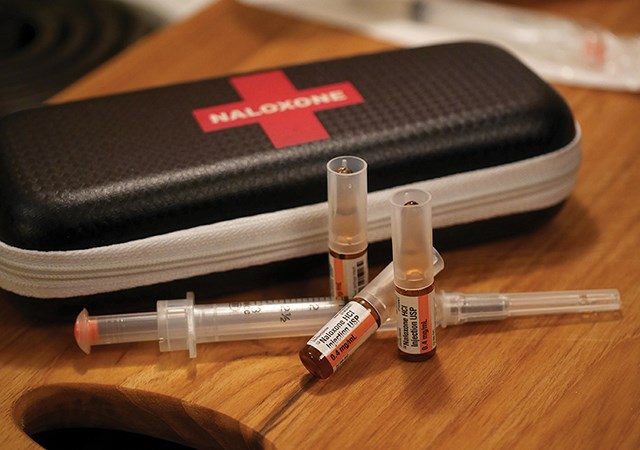The Sea to Sky School District is playing it safe rather than sorry when it comes to dealing with what the province is calling a “public health emergency.”
While officials have determined the chances of opioid overdose in the school district are very small, it would be best to have naloxone kits on hand just in case, said director Phillip Clarke at a recent school board meeting.
Naloxone is administered to reverse the effects of opioid drugs, such as heroin, morphine or fentanyl.
“Although we are at a very low risk of use of opioids in our schools, or in need to use a naloxone kit, we are at high risk if we [don’t have] one if something like that were to happen,” said Clarke.
This finding was the result of an assessment tool from the Ministry of Health. Emergency response times and school locations were factors that were also taken into consideration.
To this end, school staffers have decided that the district should have treatment readily available.
“Our principals took that to their [parent advisory councils] with their schools and they discussed it,” said Clarke. “They all established that it would be a good idea to have naloxone kits at all the high schools and the middle school.”
Vancouver Coastal Health officials will train Squamish school staff how to use the kits.
This first batch of kits is free, but replacements will cost $34 each. Each school included in the plan will get a kit.
This measure stems from the provincial health officer’s advisory that B.C. schools obtain naloxone kits and train staff to use them.
B.C. is currently in an opioid crisis, which provincial health officer Dr. Perry Kendall has deemed a “public health emergency.”
Fentanyl, which can be between 50 to 100 times more powerful than morphine, has been blamed for the spiking numbers of overdose deaths.
BC Coroners statistics show there have been 1,103 overdose deaths from January to September of this year — more than double the number in all of 2015, and quadruple all deaths that occurred throughout 2012.
From January to September of this year, 34 people have died on the North Shore/Coast Garibaldi health region, which includes Squamish, Whistler, Pemberton and the Sunshine Coast.
B.C.’s northwest health region has the fewest deaths — five, to be exact — while Vancouver leads the way with 281.



